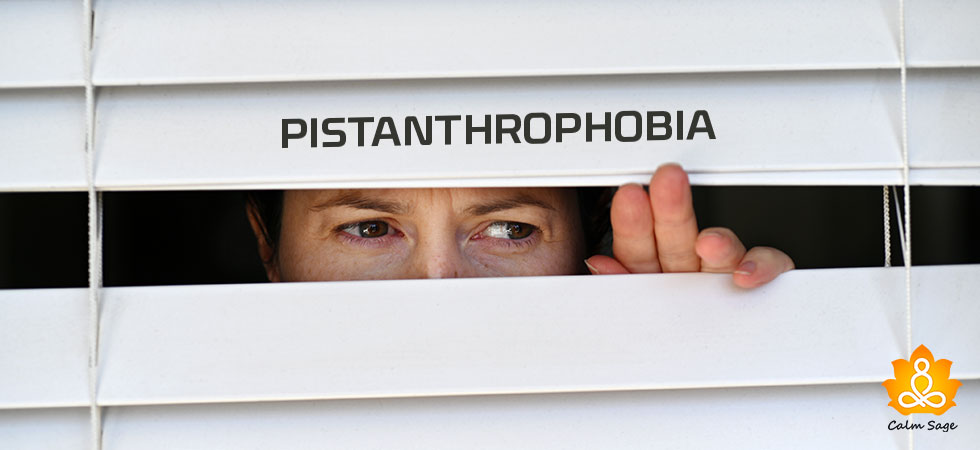Pistanthrophobia: The Fear of Trust & How it Impacts Us

We all want to be trusted and we all want to trust our loved ones because when that trust is broken it can leave in its wake only betrayal and broken hope. Once your trust is broken and you’re left behind, and betrayed, it can make you feel wary of trusting others.
After all, if you’re burned once by fire, you’ll be careful around fire-related situations in the future, right? This wariness, if left unaddressed, can turn into a fear of trust also known as Pistanthrophobia.
Living with pistanthrophobia, the fear of trust or the fear of trusting others is distressing, because who wants to doubt their loved ones, even if their intentions are pure?
Because of the constant fear of having your trust betrayed, you may engage in behaviors that may jeopardize your relationships and even negatively affect your well-being, including your ability to trust others as well as your own judgment.
Let’s learn more about this fear of trust or pistanthrophobia, its symptoms, what causes it, how it impacts our well-being, and how we can overcome this fear of trust.
What is Pistanthrophobia, The Fear of Trust?

Pistanthrophobia or the fear of trust is a type of irrational fear that makes it difficult for a person to trust anyone else. This kind of fear more commonly arises in romantic relationships and can be developed after one of the partners has had a negative experience in a past romantic relationship.
Because of the trauma from broken trust, they were left hurt and betrayed, causing them to be wary of allowing anyone to gain such a level of trust again.
Not only romantic relationships but negative experiences in platonic or even family relationships can leave a mark on a person, making them fear trusting others. The anxiety that follows this fear of trust can cause sabotaging behavior or similar negative behavior that can harm current or all future relationships.
Eventually, this can make you question or wonder, “Why can’t I trust anyone?” or “I can’t trust anyone” – these thoughts, over time, can begin to affect your judgment and make you all the more anxious.
Let’s take a look at the symptoms of pistanthrophobia.
Pistanthrophobia: The Symptoms
Just like any other irrational fear, pistanthrophobia symptoms are similar, however, they are more specific toward relationships. The most common symptoms of the fear of trust you can experience can include;
- Excessive and persistent fear of panic and anxiety
- Wanting to get away from a triggering situation or person
- Shortness of breath
- Fast heart rate
- Trembling
Relationship-specific symptoms can include;
- Avoiding conversations or interactions with potential partners
- Being too guarded or withdrawn
- Not engaging in flirting or interactions such as dating
- Feeling anxious or wanting to get away from intimate conversations
- Overthinking every action or conversation where relationships are concerned
- Assuming the worst of everyone
- Self-doubt or second-guessing your judgment
What Might Cause Pistanthrophobia?

There could be specific triggers that might cause one to develop this fear of trust. More often than not, these triggers can be related to a person or an event. Many of us have had a bad experience with a relationship and have felt hurt, rejected, or betrayed. Because of that bad experience, we live in constant fear of having our trust once again betrayed, causing us to be wary of all new relationships.
Some people might not have had a negative relationship experience but still struggle with low self-esteem or fear of rejection. This may also contribute to pistanthrophobia.
However, it raises the question, “Can pistanthrophobia be diagnosed?”
Pistanthrophobia can be diagnosed by a mental health professional. While this fear of trust is not listed as an official fear or anxiety disorder in the DSM-5, it can still be diagnosed as a condition that causes severe distress. A professional may ask you questions about your symptoms and previous relationship experiences to determine the cause and effect of the fear.
They may also evaluate you for other conditions to rule out any other anxiety or mental health disorder.
Let’s take a look at how this fear can be treated and managed.
Pistanthrophobia Treatment: Can it be Cured?
With phobias, one of the common treatment options is therapy. From cognitive-behavioral therapy (CBT) to exposure response prevention (ERP), various treatment options can be proposed to treat pistanthrophobia. CBT primarily focuses on changing your thoughts from negative to positive and helping you develop effective coping techniques to deal with any negative thinking patterns that arise in the future.
Exposure response prevention, on the other hand, focuses on exposing the fear gradually and then helping the client slowly develop a tolerance for the fear. With pistanthrophobia, a therapist can start by asking the client to visualize events that cause them distress and encouraging them to talk about the experience in a safe space.
There are also self-help ways to overcome the fear of trust. Here are some of the ways you can overcome pistanthrophobia.
Tips to Overcome Pistanthrophobia

1.Identify Your Triggers
The first thing you gotta do is to figure out what causes you to experience the negative thoughts associated with your fear. Once you know them, you can work to either eliminate them or avoid them to overcome your fear.
2.Work on Yourself
Not being able to trust the other person or allowing yourself to be vulnerable with them can drain you and leave you broken. To overcome this, you need to work on healing yourself. See how your past trauma is affecting your present and work on resolving that.
3.Let go of The Baggage
To overcome your fear of trust, you need to learn how to let go of the baggage you seem to be carrying on your shoulders. You need to embrace your new relationship with an open heart if not trust initially. You need to remind yourself that one negative relationship cannot dictate your future relationships.
4.Stay Positive
When you find it hard to trust others, you need to embrace the idea of positivity. When you think and stay positive, you learn how to change your mindset and free yourself from the cycle of negative thoughts and ruminations.
What Next?
We all might have had some negative relationships in our lives, but allowing those negative experiences to dictate our future (and potentially positive) relationships can’t work. Many a time, anxiety, trauma, and trust issues are what cause us to fear trusting others. By working on improving your mental health and emotional wellness, you can learn to let go of this fear, eventually.
Pistanthropbhobia, the fear of trust, can cause you to lose trust in yourself and others as well as cause you to fear connecting with others – romantically, platonically, emotionally, or even professionally. Addressing the cause of the fear and with the help of professional guidance you can learn to overcome and even cure pistanthrophobia, enough to allow others into your life and build healthy and trusting relationships.

Great for a large network of licensed therapists
-
$60 to $90/week, billed every 4 weeks
-
Therapy via messaging, phone, or live video chat
-
Flexible cancellation at any time
20% off your first month

Great for CBT Based therapists
-
$40/week, billed every 4 weeks
-
Therapy via messaging, phone, or live video chat
-
Specialization for CBT based Therapy
20% off your first month

Best for Treatment Plants
-
$60 to $90/week, billed every 4 weeks
-
Therapy via messaging, phone, or live video chat
-
Flexible cancellation at any time
$100 off your first month with code SPACE
Found this article on pistanthrophobia, the fear of trust helpful? Let me know in the comments below or leave me a message at info@calmsage.com. You can also come over to Calm Sage’s social media and say “Hi!”
Take care.




















